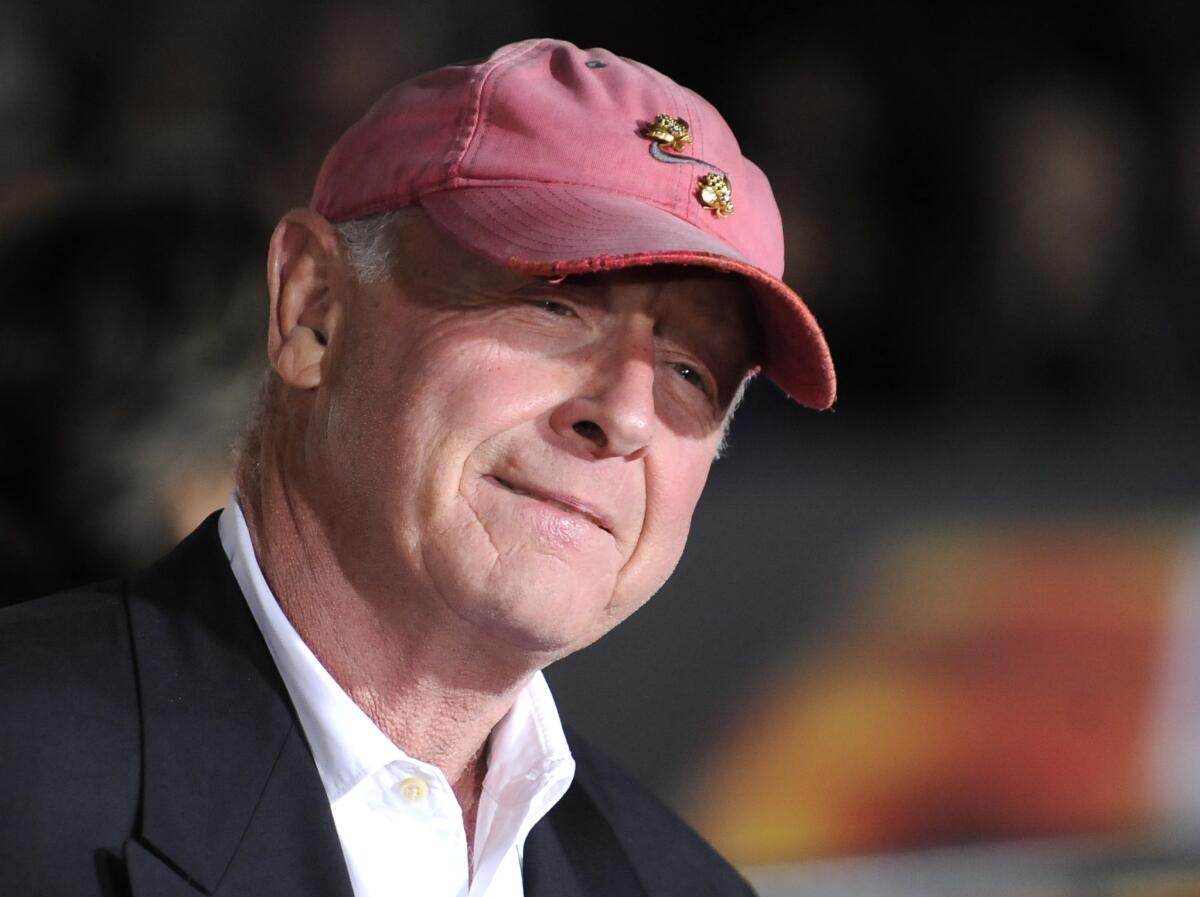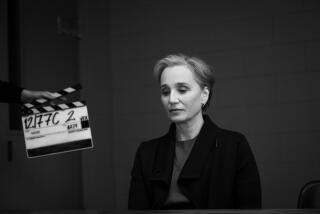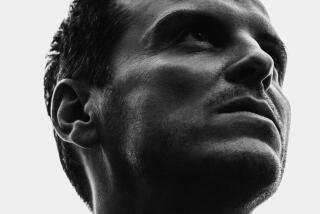Director Tony Scott lived like his alpha-male action heroes

Tony Scott arrives at the Los Angeles premiere of “Unstoppable.”
With films such as”Unstoppable”and “Man on Fire,” Tony Scott told adrenaline-filled stories about fearless men — spies and cops, race car drivers and fighter pilots — who live by a code and face death on their own terms.
He filled his cinematic landscape with intrigue and action, avoiding computer effects in favor of real-life stunts with speeding trains and screaming jets, even once shutting down the Mississippi River to blow up a ferryboat.
In life, the British director-producer shared many characteristics with his alpha-male action heroes. At age 68, the avid rock climber was planning an ascent on Yosemite’s El Capitan and barreling ahead with a slew of film and TV projects, including doing research last week in Nevada for a “Top Gun” sequel with Tom Cruise and Jerry Bruckheimer.
As recently as a few weeks ago, he was busily crafting miniature submersibles in his West Hollywood office for the planned film “Narco2 Sub” and was actively casting another drug-trafficking movie, “Lucky Strike.”
FOR THE RECORD:
Director’s death: An article in the Aug. 21 Section A about the death of director Tony Scott gave the first name of composer Harry Gregson-Williams as Henry. —
So when Scott leaped off the Vincent Thomas Bridge in San Pedro on Sunday, the fatal plunge shocked colleagues who regarded him as a man with few problems and many stories still to tell. Yet some friends also saw the dramatic act as in keeping with Scott’s on-my-own-terms approach to work and life that had propelled him from the ranks of TV commercial directors into a central figure in Hollywood’s blockbuster economy, with his movies taking in more than $1 billion at the domestic box office alone.
Scott may have been troubled by an illness that few associates knew about. Two people close to the filmmaker said he was suffering from a serious physical ailment at the time of his apparent suicide. The two, who asked not to be identified because of the personal nature of their relationships, said they did not know the exact nature of his illness. A coroner’s official told The Times that Scott’s wife, Donna, denied that her husband had inoperable brain cancer, as ABC News had reported.
PHOTOS: Celebrities react to Tony Scott’s death
Although several associates interviewed Monday said that Scott in recent months had mentioned back or hip problems, many said they had no indication it was anything other than business as normal for the director-producer.
“He was completely on a high — laughing and energetic,” said Elizabeth Gabler, whose Fox 2000 studio division made “Man on Fire” and was developing “Lucky Strike.” They were scheduled to discuss script notes Monday morning, she said.
“In a million years, this isn’t something I’d have thought he’d do,” agreed Mark Bomback, a writer on “Unstoppable” who also worked on “Narco2 Sub” this summer. “I never had an inkling he had any health problems.... You’d think he was making his first film from his level of energy and enthusiasm.”
PHOTOS: Director Tony Scott dead at 68
Joe Carnahan, who directed 2010’s”The A-Team,” which Scott produced, said Scott must have been experiencing an “unbreachable level of pain” and called his death “powerfully sad.”
“If there was indeed something terminally ill about Tony, this is the way he would go out: big and facing death, without shrinking away from it,” Carnahan said. “He wouldn’t wait for death. The idea of death encroaching, coming for him? No, Tony would be the first one to ride out and find the death, he wouldn’t wait to waste away. He would have gone right into the heart of it.”
Los Angeles County coroner’s officials said that an autopsy conducted Monday would look for signs of an underlying health problem. Scott left multiple notes, including in his car on the bridge and in his office; their contents have not been revealed publicly. The filmmaker had been familiar with the Vincent Thomas Bridge and its surrounding area for several years: in 2010, he filmed reshoots for “Unstoppable” in a railroad yard under the span, said the film’s assistant production supervisor, Scott Trimble. A 2009 episode of the television show “Numb3rs,” which Scott produced, was also shot in San Pedro.
The younger brother of “Gladiator”director Ridley Scott, with whom he was a business partner, Tony Scott was one of the first directors to apply his skills hawking consumer products like cars to selling American movie stars like Tom Cruise and Denzel Washington. The commercial-to-movie path was subsequently followed by Michael Bay (“Transformers”) and David Fincher (“The Social Network”).
Scott’s movies rarely received glowing reviews from critics and he was never nominated for an Academy Award, but his work was widely liked by ticket buyers. Unlike many action directors, who often see their actors as transposable parts, Scott worked repeatedly with some of Hollywood’s most acclaimed performers. He often sought out “the most dangerous places in the world” to make movies, and was ambushed in Mexico while scouting locations for “Man on Fire,” Gabler said.
“Tony threw you into the movie,” said Jack Epps, screenwriter of “Top Gun” and an associate professor at USC’s School of Cinematic Arts. “He took you on a ride — the look, the lenses, the colors. He increased the speed of movies, the rhythm. Coming from commercials, Tony liked a fast movie.”
In an interview with The Times on the eve of the release of “Crimson Tide,” Scott said: “The biggest edge I live on is directing. That’s the most scary, dangerous thing you can do in your life.” But he also saw a parallel with his passion for rock climbing: “The true strength of rock climbing is in the head, not the body.... It’s controlling the fear as I do while I’m directing.”
Educated in England and a painter in college, Scott made his first film in 1983 — a vampire tale called “The Hunger” starring Catherine Deneuve, David Bowie and Susan Sarandon. It flopped.
Based on the strength of a Saab commercial he directed that featured jets, Scott was hired by Bruckheimer and producer Don Simpson to direct 1986’s “Top Gun,” Epps said.
“He had the skill to photograph jet planes flying 400 miles per hour,” Epps said. “It was pretty remarkable work. That movie became iconic because of choices he made, and it influenced the way other action movies were shot and edited.”
“Top Gun,” a profile of Navy fighter pilots, cemented Cruise as one of the industry’s biggest stars. The film, which grossed a then-spectacular $354 million worldwide, transformed Scott into a Hollywood A-lister.
The next year, Scott directed Eddie Murphy in “Beverly Hills Cop II” and then went on to make the big-budget thrillers “Days of Thunder,” “Crimson Tide,” “Enemy of the State” and “Man on Fire,” along with edgier fare such as “True Romance” and “Domino.”
In an industry that considers most people older than 50 past their prime, Scott was inundated with assignments at the time of his death.
“He seemed like he always seemed: supportive and funny, but at the same time serious about the work,” said composer Henry Gregson-Williams, who collaborated with Scott on eight films, the last being 2010’s “Unstoppable,” and spoke with the director about three months ago. “Tony was always juggling lots of projects.
FOR THE RECORD
Tony Scott: An article in the Aug. 21 Section A about the death of Tony Scott gave the first name of composer Harry Gregson-Williams as Henry.
“Tony was always an adventurer,” he said. “He was fiercely loyal. And he was very sensitive. Looking at his films, you might not think that. But he was an incredibly sweet, sensitive man.”
Scott’s most recent television commercial was for Diet Mountain Dew, released this month. It featured Dallas Mavericks owner Mark Cuban trying to tempt a Diet Dew fan with riches, including a speedboat and a helicopter, if he would just give him the last bottle of the soda at a mini-mart. Scott also directed commercials for BMW, Dodge, Italia Telecom, Marlboro, theU.S. Army and Barclays Bank.
“I feel blessed to have known and worked with Tony,” said cinematographer Paul Cameron, who shot Scott’s “Man on Fire” and “Deja Vu.” “He was way beyond a mentor to me. He was by far the most gracious, talented and hard-working man I have ever met.”
“In person, Tony was a real man on fire,” said Tom Rothman, a chairman of 20th Century Fox, which made a number of Scott’s films, including “Unstoppable.” “He had indefatigable energy and a burning creative energy. As good a filmmaker as he was, he was a better person. You never had a meeting with Tony that wasn’t funny, that wasn’t followed up by some handwritten note he would send to you.”
ALSO:
Divers took hours to find Scott’s body
Times staff writers Ben Fritz, Steven Zeitchik, Mark Olsen, Andrew Blankstein, Richard Winton, Amy Kaufman and Claudia Eller contributed to this report.
More to Read
Only good movies
Get the Indie Focus newsletter, Mark Olsen's weekly guide to the world of cinema.
You may occasionally receive promotional content from the Los Angeles Times.












